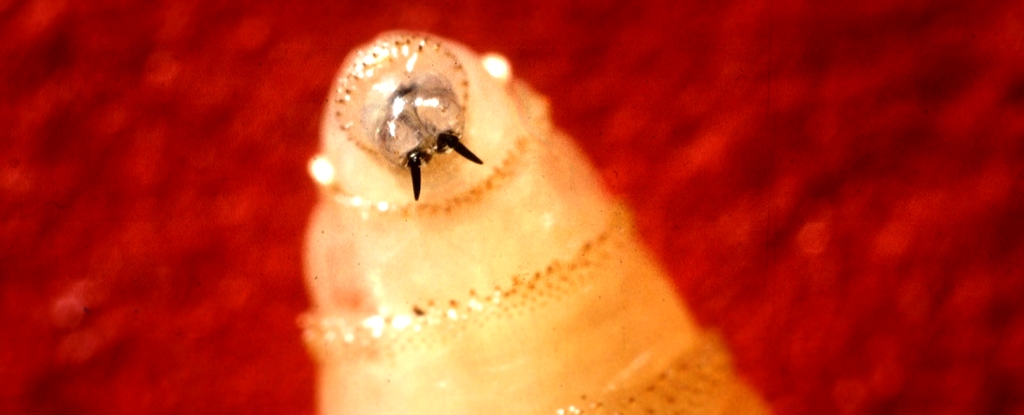
A flesh-eating parasite has been confirmed in the United States for the first time in decades, infecting a woman in Maryland who had recently traveled to Central America. The patient is reported to have recovered, and health officials emphasize that the risk of further human transmission remains “very low.” Despite this reassurance, the emergence of the parasite raises significant concerns about its potential impact on food security in the region.
The infection is linked to the New World screwworm fly, known scientifically as Cochliomyia hominivorax. These flies lay their eggs in open wounds or around the eyes and navels of warm-blooded animals, where the larvae then consume living flesh. Infectious disease specialist Daniel Griffin described the destructive capability of the maggots, stating they can turn “living tissue into Swiss cheese.” Without treatment, screwworm infections can be fatal.
While livestock such as cattle, horses, and pigs are the primary victims of screwworms, the parasite has also been known to affect pets and, in rare cases, humans. The potential economic impact of a screwworm outbreak in Texas, the largest cattle-producing state in the US, could reach approximately $1.8 billion, according to the US Department of Agriculture.
Historical Context and Recent Outbreaks
Efforts to eradicate the screwworm fly in the US began in the 1950s, which included the release of sterile flies to breed with wild populations. These measures were successful, and the last official endemic case in the US was reported in 1982. However, travelers have occasionally brought the parasite back into the country, and recent outbreaks in Central America have reignited concerns.
Since early 2023, hundreds of cases have been reported in Nicaragua and Costa Rica, with some individuals requiring life-saving medical interventions. Ricardo Somarriba, director of Nicaragua’s Institute for Agricultural Protection and Health, noted the urgency of addressing these infections, indicating that untreated cases could lead to severe complications, including brain damage.
The Maryland case serves as a critical reminder of the importance of international collaboration to control the spread of infectious diseases. As the screwworm reemerges in areas where it was once eradicated, the implications for human health, food security, and the livelihoods of ranchers are becoming increasingly significant.
The public is urged to remain vigilant, particularly those who travel to regions where the parasite is prevalent. Health officials continue to monitor the situation closely to prevent further infections and protect both human and animal populations from this potentially devastating parasite.







